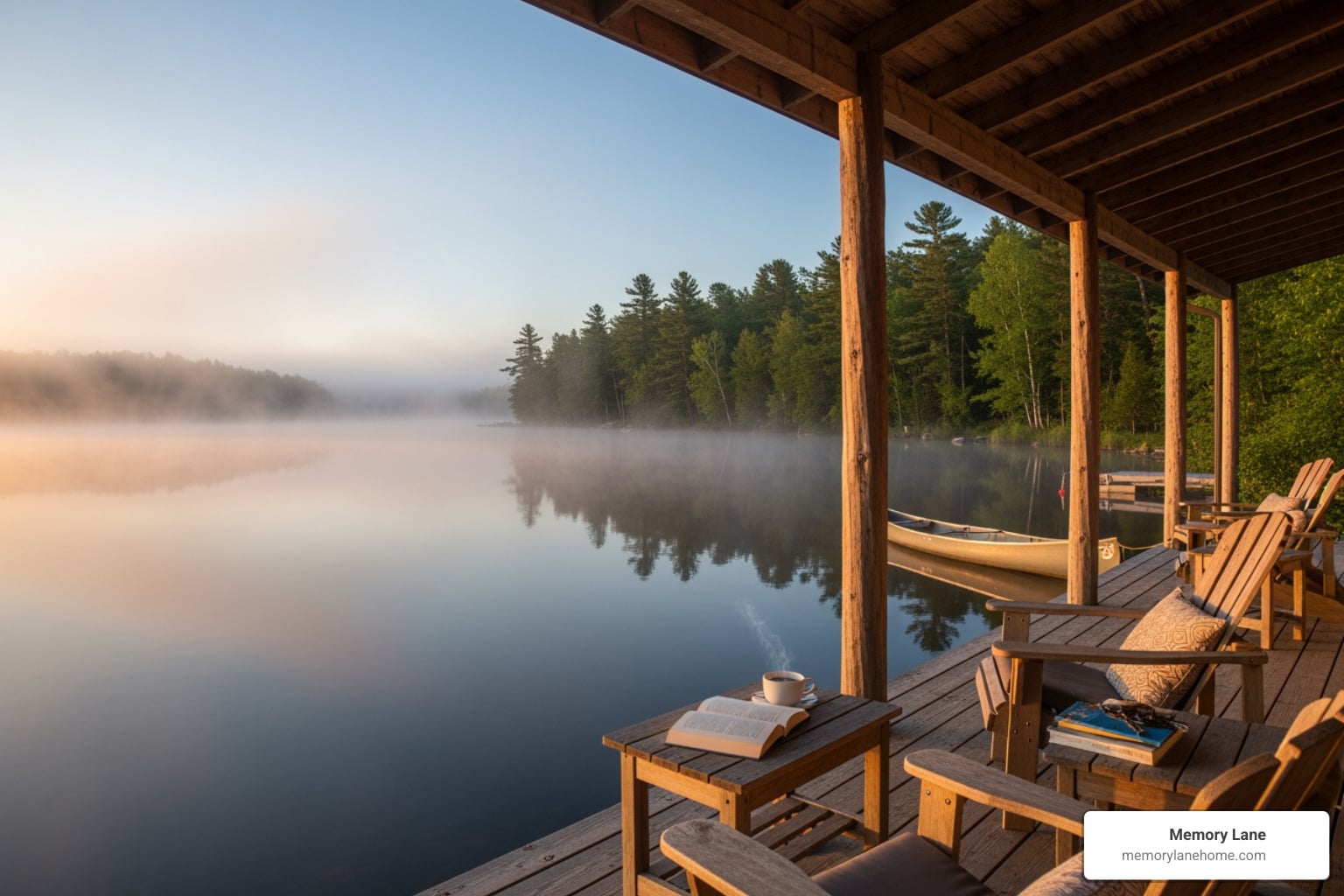Your guide to assisted living Michigan: explore costs, services, financial aid, and top communities for senior care.
How to Choose Local Memory Care Options
How to Choose Local Memory Care Options
How to Choose Local Memory Care Options: A Comprehensive Guide to Memory Care Facilities in My Area
Deciding on the right memory care facility can feel overwhelming when a loved one shows signs of dementia, but choosing a nearby community that offers security, specialized support, and personalized attention brings safety and peace of mind. In this guide, you’ll learn what memory care is and who needs it, explore different facility types and dementia-focused programs, identify key decision factors—from location to cost—and use a practical checklist to compare options. You’ll also discover why Memory Lane Home in Ypsilanti and Ann Arbor stands out with its home-like environment and high caregiver ratios, plus find local resources for families and transparent payment strategies. This roadmap ensures a confident choice of local memory care options.
What Is Memory Care and Who Needs It?
Memory care is a specialized form of senior living designed to support individuals experiencing significant memory loss and cognitive decline. It provides structured routines, secure environments, and staff trained in dementia care to help residents maintain independence and dignity. For families, understanding these specialized services sets the stage for evaluating suitable options.
What Is Memory Care?
Memory care is a residential service tailored to seniors with Alzheimer’s disease, vascular dementia, Lewy body dementia, or other cognitive impairments. It combines supervised daily assistance—such as medication management and personal care—with structured cognitive engagement like art or music activities. By offering 24/7 monitoring in a secure setting, memory care enhances quality of life and reduces wandering risks. Recognizing this customized support leads naturally to identifying when it becomes essential.
Dementia and Cognitive Decline
Memory care facilities are designed to support individuals experiencing significant memory loss and cognitive decline, providing structured routines and specialized care. These facilities offer a secure environment and staff trained in dementia care to help residents maintain independence and dignity.
This supports the article’s introduction of memory care and its purpose.
What Are the Signs It’s Time to Consider Memory Care?
- Frequent disorientation to time, place, or familiar faces that increases fall risk
- Noticeable weight loss, poor hygiene, or missed medications due to forgetting routine tasks
- Repeated safety incidents at home, such as leaving the stove on or wandering outdoors
- Caregiver exhaustion, stress, or inability to maintain consistent supervision
- Social withdrawal, agitation, or increased confusion in daily activities
These warning signs highlight the need for specialized care, which differs significantly from general assisted living.
How Does Memory Care Differ from Assisted Living?
Differentiating Memory Care from Assisted Living
Memory care differs from assisted living in several key aspects, including the level of care, security measures, and staff training. Memory care provides specialized dementia-focused assistance, structured routines, and enhanced security, such as locked exits and monitored wandering paths, which are not always available in assisted living facilities.
This citation clarifies the distinctions between memory care and assisted living, as presented in the article.
The enhanced security and training in memory care ensure that residents with cognitive challenges receive appropriate support and safety, preparing you to explore facility models locally.
How to Choose the Best Local Memory Care Facilities
Memory care services vary by setting and program focus. Understanding each model clarifies which environment best meets your loved one’s needs.
What Are Residential Memory Care Homes and How Do They Work?
Residential memory care homes are small, six-bedroom ranch houses designed to feel like family residences. Each home offers private or semi-private rooms, communal living and dining areas, and personalized care plans managed by a consistent team of dementia-trained caregivers. This intimate scale fosters meaningful relationships, reduces anxiety, and promotes a familiar atmosphere that supports daily routines and cognitive engagement.
What Are Memory Care Units Within Assisted Living Facilities?
Some assisted living communities include dedicated memory care wings or pods. These units feature secured entrances, specialized activity spaces, and staff with added dementia training. Residents benefit from the larger community’s amenities—such as physical therapy gyms or on-site salons—while receiving focused memory support. This hybrid model can suit individuals transitioning from assisted living who develop progressing memory needs.
What Specialized Dementia Care Programs and Therapies Are Offered?
- Cognitive Stimulation Therapy that uses puzzles, discussion groups, and memory games to engage residents.
- Activities of Daily Living (ADL) Assistance combining gentle prompts, task-sequencing guides, and hands-on support.
- Reminiscence Therapy using family photos, music from earlier decades, and life story sharing to evoke positive memories.
- Creative Arts Programs such as music, art, and pet therapy to boost mood and social interaction.
- 24/7 Monitoring with wearable tracking, frequent wellness checks, and medication management for safety and health.
These targeted programs reinforce resident engagement and well-being, setting the stage for evaluating location and logistics.
What Key Factors Should You Consider When Choosing a Memory Care Facility?
Selecting the right community involves weighing several critical factors that impact daily life, safety, and satisfaction.
How Important Is Location and Accessibility in Ypsilanti and Ann Arbor?
Proximity to family, friends, and familiar landmarks reduces confusion and supports regular visits. Look for facilities near parks, shopping centers, and medical providers. Easy highway access and on-site transportation services ensure that families and healthcare teams can coordinate visits and appointments efficiently, strengthening connections and continuity of care.
Why Does Staffing Ratio and Dementia Training Matter?
A high caregiver-to-resident ratio ensures individualized attention and faster response times. Staff with specialized dementia training understand nonverbal cues, manage challenging behaviors calmly, and adapt routines to each resident’s cognitive level. These skills directly influence safety, emotional well-being, and the ability to maintain daily structure.
What Environment and Safety Features Should You Look For?
- Clearly marked indoor/outdoor walking paths with visual cues
- Secure garden areas and patios to encourage outdoor activity
- Familiar furnishings and residential décor to reduce anxiety
- Non-slip flooring, grab bars, and soft edges to prevent falls
- Emergency call systems in every room and common area
These features create a safe, supportive setting for memory care residents, which dovetails with the next factor: engagement opportunities.
Which Activities and Engagement Programs Support Cognitive Health?
- Music Therapy to trigger positive emotional responses and memory recall
- Art Therapy for creative expression and fine motor stimulation
- Reminiscence Sessions using personalized memory kits
- Gardening Clubs offering sensory stimulation and purposeful tasks
- Daily Life Skills Classes to reinforce ADLs with structured guidance
These activities promote socialization and cognitive stimulation, flowing naturally into financial considerations.
How Do Cost and Payment Options Affect Your Choice?
Understanding fees and funding sources protects against unexpected expenses. Many communities publish a base memory care rate and outline extra charges for enhanced services. In Michigan, Medicaid waivers, VA benefits, long-term care insurance, and private payment can offset costs. Request a transparent fee schedule that details room rent, care packages, therapy programs, and any incidental charges to compare options clearly.
Cost and Payment Options for Memory Care
Understanding the costs and payment options for memory care is crucial for families. Various funding sources can help cover the expenses, including Medicaid waivers, VA benefits, long-term care insurance, and private payment. Requesting a detailed contract that itemizes all costs is essential for transparent financial planning.
This citation supports the article’s discussion of financial aspects related to memory care.
How Can a Memory Care Checklist Help Families Make Informed Decisions?
A structured checklist ensures that you assess each facility uniformly and capture all critical information.
What Items Should Be Included in a Memory Care Facility Checklist?
- Licensing and accreditation status
- Caregiver-to-resident ratio and staff credentials
- Security and safety features
- Daily routines and activity schedules
- Meal quality and dining environment
- Personal care services and therapy programs
- Cost structure, payment options, and contract terms
- Family communication protocols and visitation policies
Using these categories guarantees comprehensive evaluations and supports side-by-side comparisons.
How to Use a Checklist to Compare Local Memory Care Options?
Visit each facility with your checklist in hand, observing interactions, touring living spaces, and interviewing staff. Assign ratings or notes for each criterion, then review your findings to identify the best fit. A systematic approach removes uncertainty and highlights which community aligns with your loved one’s care needs and family priorities.
Why Choose Memory Lane Home for Memory Care in Ypsilanti and Ann Arbor?
Memory Lane Home’s residential model delivers unparalleled comfort, familiarity, and expert support in a six-bedroom ranch setting.
What Makes Memory Lane Home’s Residential Model Unique?
Each home accommodates only six residents, fostering close-knit relationships and replicating a family household. Private bedrooms, shared living rooms, and home-cooked meals create a comforting environment that reduces agitation and boosts emotional well-being. This scale allows staff to know every resident’s preferences and routines, setting the standard for personalized care.
How Does Memory Lane Home Ensure Personalized 24/7 Care?
With a high caregiver-to-resident ratio, Memory Lane Home provides continuous supervision and responsive assistance. Dementia-trained caregivers implement individualized care plans that adjust to changing needs, ensuring medication schedules, hygiene routines, and activity engagement remain consistent around the clock.
What Specialized Programs Does Memory Lane Home Offer for Alzheimer’s and Dementia?
- Music and reminiscence sessions personalized to each resident
- Art and horticulture therapy for sensory enrichment
- Structured life skills workshops to maintain independence
- Family-involved events that encourage visits and participation
What Resources Are Available to Support Caregivers and Families Navigating Memory Care?
Families benefit from local networks and stress-management tools to sustain their own well-being during the transition.
What Local Support Groups and Community Resources Exist in Ypsilanti and Ann Arbor?
- Alzheimer’s Association Greater Michigan Chapter monthly meetups
- Local Adult Day Services that provide respite and socialization
- Community Education classes on dementia communication strategies
- Faith-based volunteer programs offering companionship visits
How Can Caregivers Manage Stress and Burnout?
- Establish regular respite breaks through adult day programs
- Practice stress-reduction techniques such as mindfulness or guided meditation
- Join peer support circles for shared experiences and advice
- Seek professional counseling or caregiver coaching for coping strategies
Where Can Families Find Guidance on Dementia Care Decisions?
- State health department websites detailing licensing and regulations
- Nonprofit guides on care transitions and legal planning
- Professional dementia care consultants offering personalized assessments
- Online educational portals with evidence-based articles and videos
What Are the Typical Costs of Memory Care and How Can You Pay for It?
Understanding local pricing and funding mechanisms streamlines financial planning and prevents surprises.
How Much Does Memory Care Cost in Michigan Compared to Assisted Living?
What Payment Options Are Available, Including Medicaid and Long-Term Care Insurance?
- Michigan Medicaid Home-and-Community-Based Waiver for eligible seniors
- VA Aid & Attendance benefits for veterans and surviving spouses
- Private long-term care insurance policies reimbursing memory care charges
- Personal savings or family contributions under private-pay models
How Can You Get Transparent Pricing and Understand What’s Included?
Request a detailed contract that itemizes:
- Room and board fees
- Standard care package components (ADLs, medication management)
- Optional service add-ons (therapy sessions, specialty diets)
- Deposit, refund policies, and notice requirements
Clear documentation prevents hidden costs and aligns expectations with budget planning.
Families who use this guide and checklist can approach visits systematically, compare crucial attributes, and select a memory care setting that delivers safety, engagement, and compassionate support. Partnering with a community that reflects these standards will ease transitions and foster a positive environment for seniors facing cognitive decline. By focusing on personalized care models, specialized programs, and transparent pricing, families can confidently choose local memory care options that honor dignity and quality of life.
Frequently Asked Questions
What should I look for in a memory care facility’s staff qualifications?
When evaluating a memory care facility, it’s essential to consider the qualifications of the staff. Look for caregivers who have specialized training in dementia care, including certifications in behavioral management and communication strategies tailored for individuals with cognitive impairments. Additionally, inquire about ongoing training programs that ensure staff stay updated on best practices in memory care. A well-trained team can significantly impact the quality of care and the overall well-being of residents.
How can I assess the quality of life in a memory care facility?
To assess the quality of life in a memory care facility, visit during activity hours to observe resident engagement and interactions. Pay attention to the atmosphere—are residents smiling and participating? Ask about the variety of activities offered, including cognitive stimulation and social events. Additionally, inquire about family involvement opportunities and how the facility encourages communication between residents and their loved ones. A vibrant, supportive environment is crucial for enhancing residents’ quality of life.
What role do family visits play in a resident’s well-being?
Family visits are vital for the emotional and psychological well-being of residents in memory care facilities. Regular visits help maintain connections with loved ones, which can reduce feelings of isolation and anxiety. They also provide opportunities for families to engage in activities together, reinforcing positive memories and emotional bonds. Facilities that encourage family involvement often report better resident outcomes, as these interactions can enhance mood and cognitive function.
Are there specific dietary considerations for residents in memory care?
Yes, dietary considerations are crucial in memory care settings. Residents may have specific nutritional needs due to health conditions or cognitive impairments. Facilities should offer balanced meals that cater to individual dietary restrictions, such as low-sodium or diabetic-friendly options. Additionally, meal times should be structured to provide a calm and social environment, which can enhance the dining experience. Inquire about how the facility accommodates special dietary needs and preferences to ensure proper nutrition.
How can I ensure my loved one receives personalized care in a memory care facility?
To ensure personalized care, ask about the facility’s approach to creating individualized care plans. A good memory care facility will assess each resident’s unique needs, preferences, and routines, tailoring care accordingly. Regular updates and communication with caregivers about any changes in your loved one’s condition are also essential. Additionally, facilities that prioritize a high caregiver-to-resident ratio can provide more focused attention, enhancing the personalization of care.
What are the benefits of engaging in therapeutic activities for memory care residents?
Engaging in therapeutic activities offers numerous benefits for memory care residents. These activities, such as art therapy, music sessions, and reminiscence therapy, stimulate cognitive function and promote emotional well-being. They can help reduce anxiety, improve mood, and enhance social interaction among residents. Additionally, structured activities provide a sense of purpose and routine, which is particularly beneficial for individuals with cognitive decline. Facilities that prioritize these programs often see improved overall resident satisfaction and quality of life.
How can I find out about the latest research and advancements in memory care?
To stay informed about the latest research and advancements in memory care, consider subscribing to reputable organizations such as the Alzheimer’s Association or the National Institute on Aging. These organizations often publish newsletters, research articles, and updates on best practices in dementia care. Additionally, attending local workshops, webinars, or support group meetings can provide valuable insights and connect you with professionals in the field. Engaging with these resources can enhance your understanding and ability to advocate for your loved one.
Conclusion
Choosing the right memory care facility ensures your loved one receives the specialized support they need while maintaining dignity and quality of life. By understanding the unique features of memory care, families can make informed decisions that prioritize safety, engagement, and personalized care. Take the next step in securing a nurturing environment by exploring local options that align with your loved one’s needs. Visit our website to discover more about the best memory care facilities in your area today.


